In our series Salary Stories, women with long-term career experience open up about the most intimate details of their jobs: compensation. It’s an honest look at how real people navigate the complicated world of negotiating, raises, promotions and job loss, with the hope it will give young people more insight into how to advocate for themselves — and maybe take a few risks along the way.
Been in the workforce for at least five years and interested in contributing your salary story? Submit your information here.
Age: 36
Location: Hudson Valley, NY
Current industry and job title: Beauty e-commerce, manager of customer experience
Current salary: $104,000
Number of years employed since school or university: 13
Starting salary: About $31,000
Biggest salary jump: From $76,000 to $87,000 when I received a promotion at my current job, from supervisor to manager.
Biggest salary drop: From $75,000 to $67,000 when I left a toxic company. But the salary drop was worth it for my mental health.
Biggest negotiation regret: Sharing my current salary when interviewing for other jobs. This caused me to have to negotiate more, because the company would try to meet me where I was, as opposed to offering me a higher salary.
Best salary advice: Use all the parts of your salary! PTO, pre-tax investing, FSA/HSA/transit options, wellness or education stipends. If your company offers any of these and you don’t use them, you’re leaving money on the table.
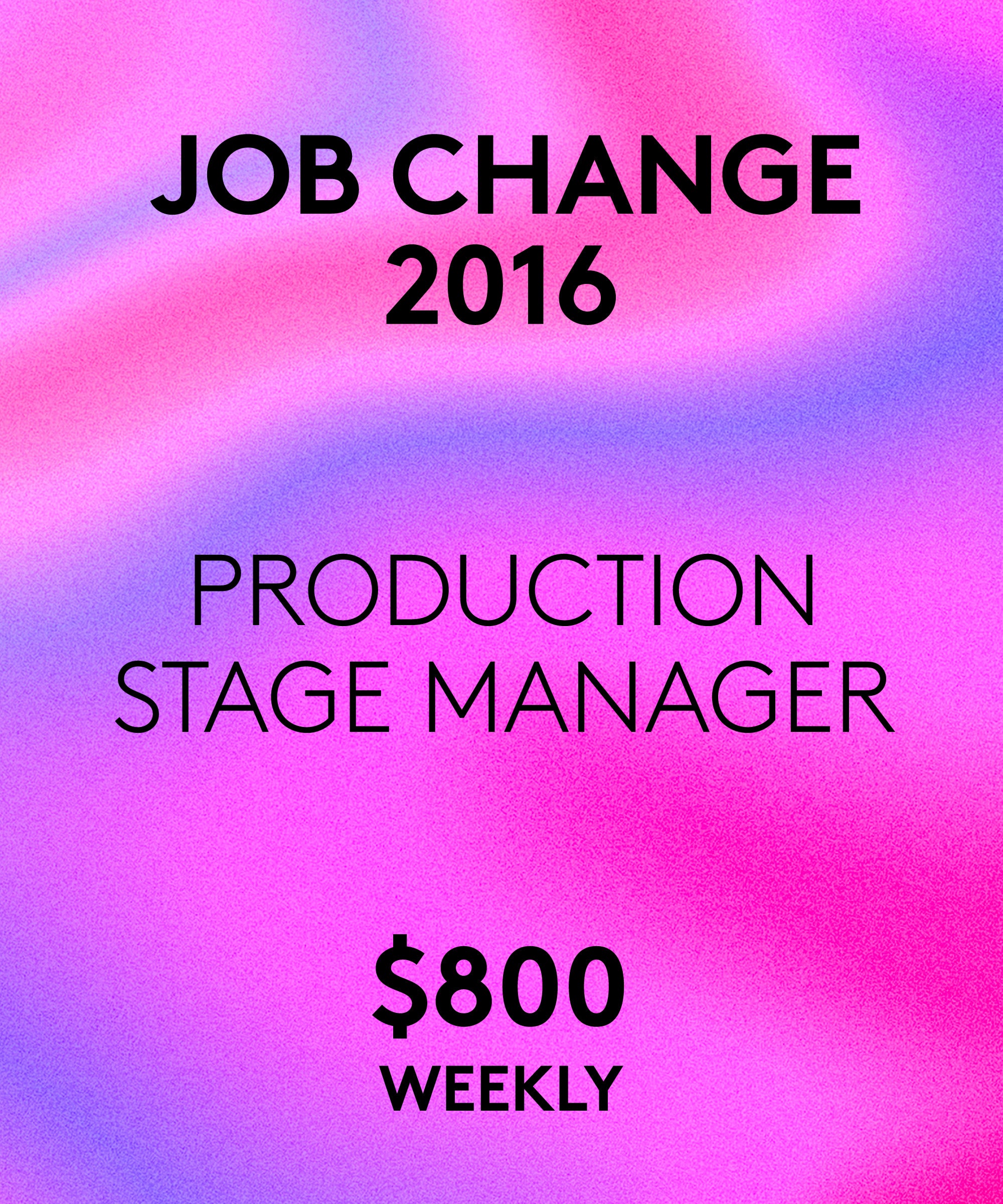
While the pay was lower than I was targeting for the number of hours I was working — it wasn’t unusual to get a midnight knock on my hotel door from the production team — the travel opportunity was worth it for me.

I started out on the front line, answering customer emails, chats, social media DMs, and phone calls. It wasn’t the most exciting work but I felt financially stable for the first time in my life, knowing I had a regular paycheck and health insurance. I was lucky to have a great manager who saw how passionate I was about people management and helped put me on track for a promotion.

I had to negotiate for this by laying out all the new responsibilities I had — in addition to hiring, coaching and managing the day-to-day of all the people in my department, I was now the liaison between all of the logistics and operational teams. I ultimately told my leadership team that I would need to start looking for a new role if my salary was not increased to match these new responsibilities.
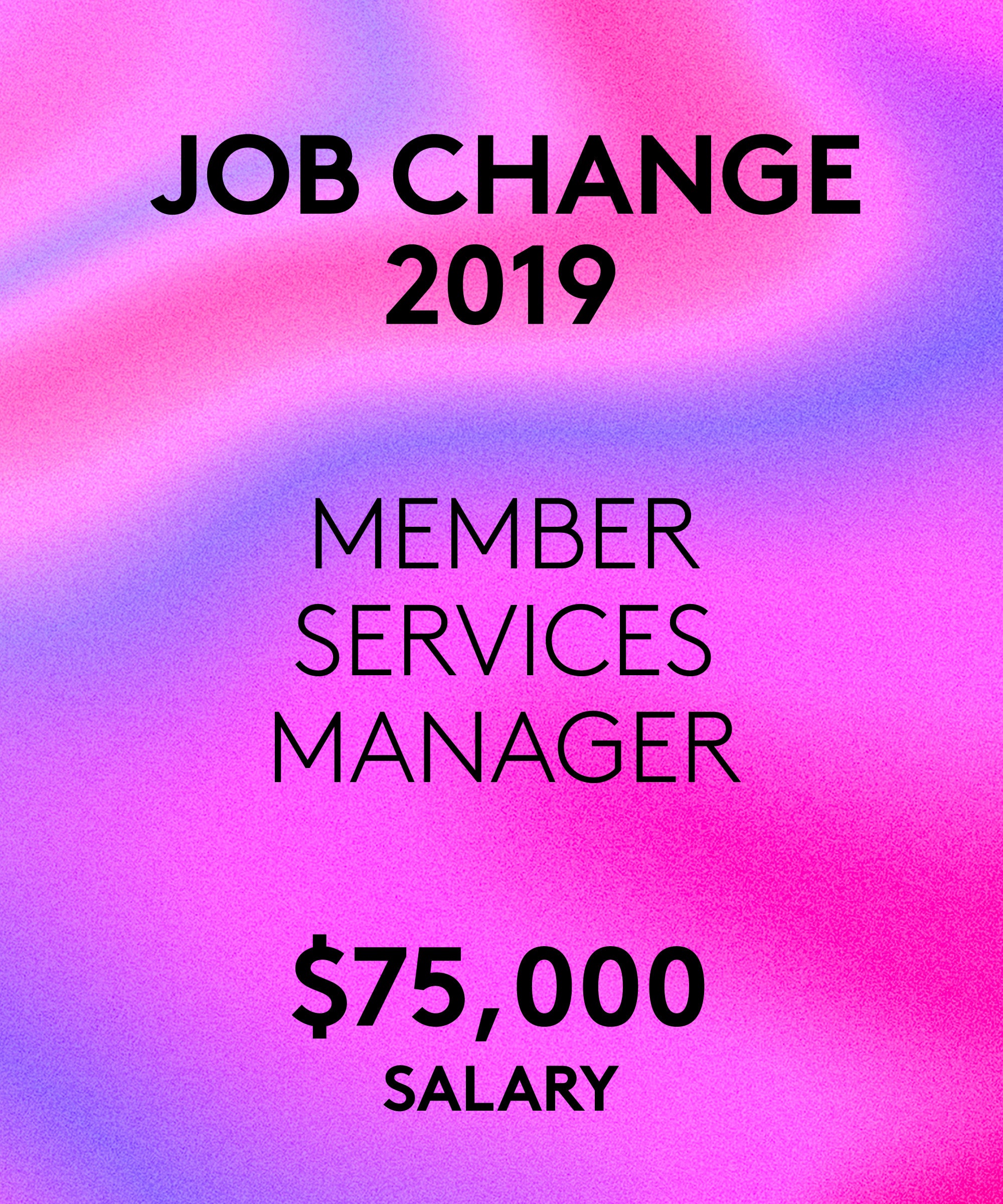
During the job acceptance process, I was only offered $70,000 — a match of the salary at my previous job — so I had to negotiate for the additional $5,000. At this point in my career, I had no idea that sharing my current salary could actually result in a lower offer — something I have never done since!
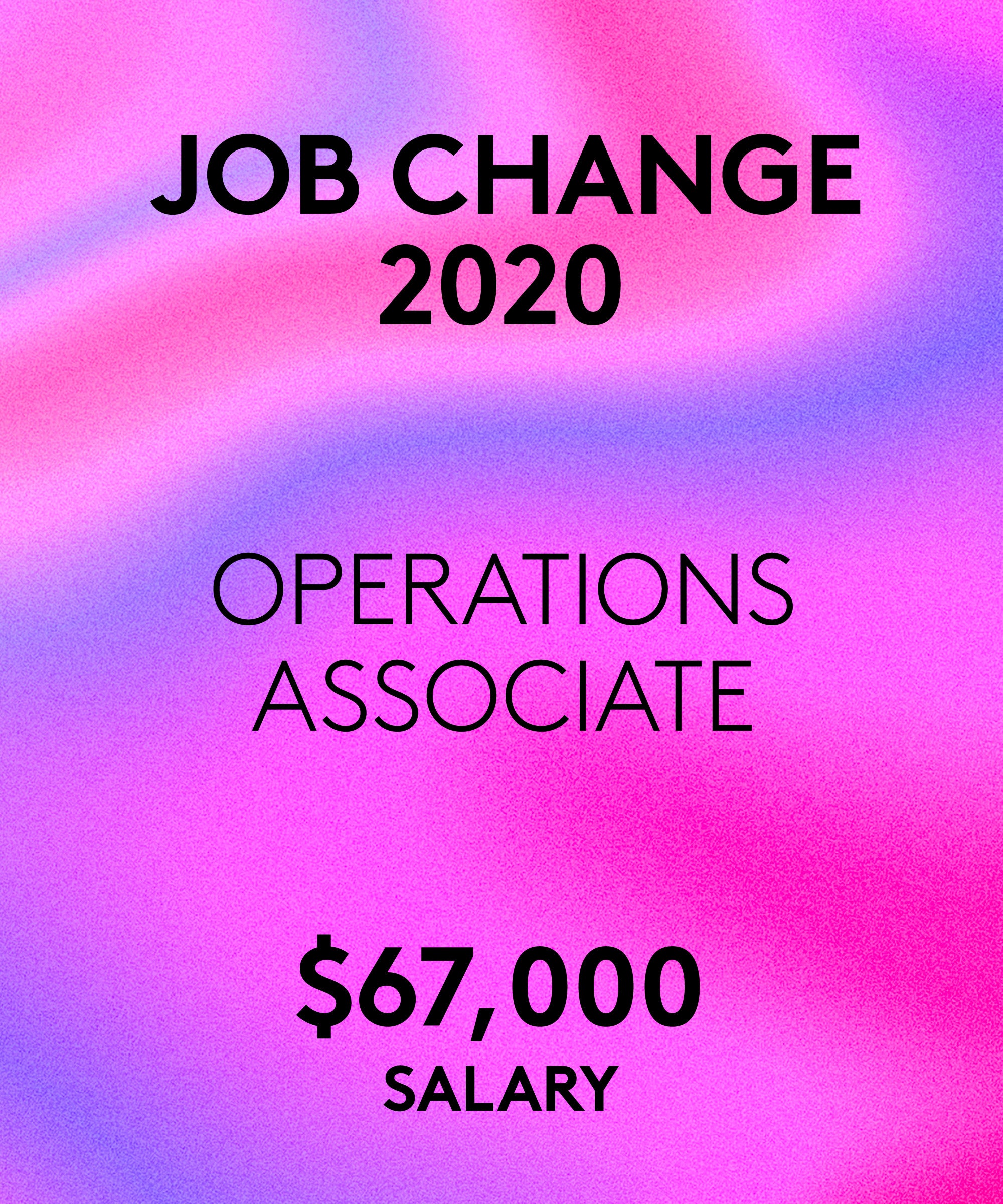
I stressed to them that this was a cut for me and asked them to write into my contract that I would have a salary renegotiation six months into my job.
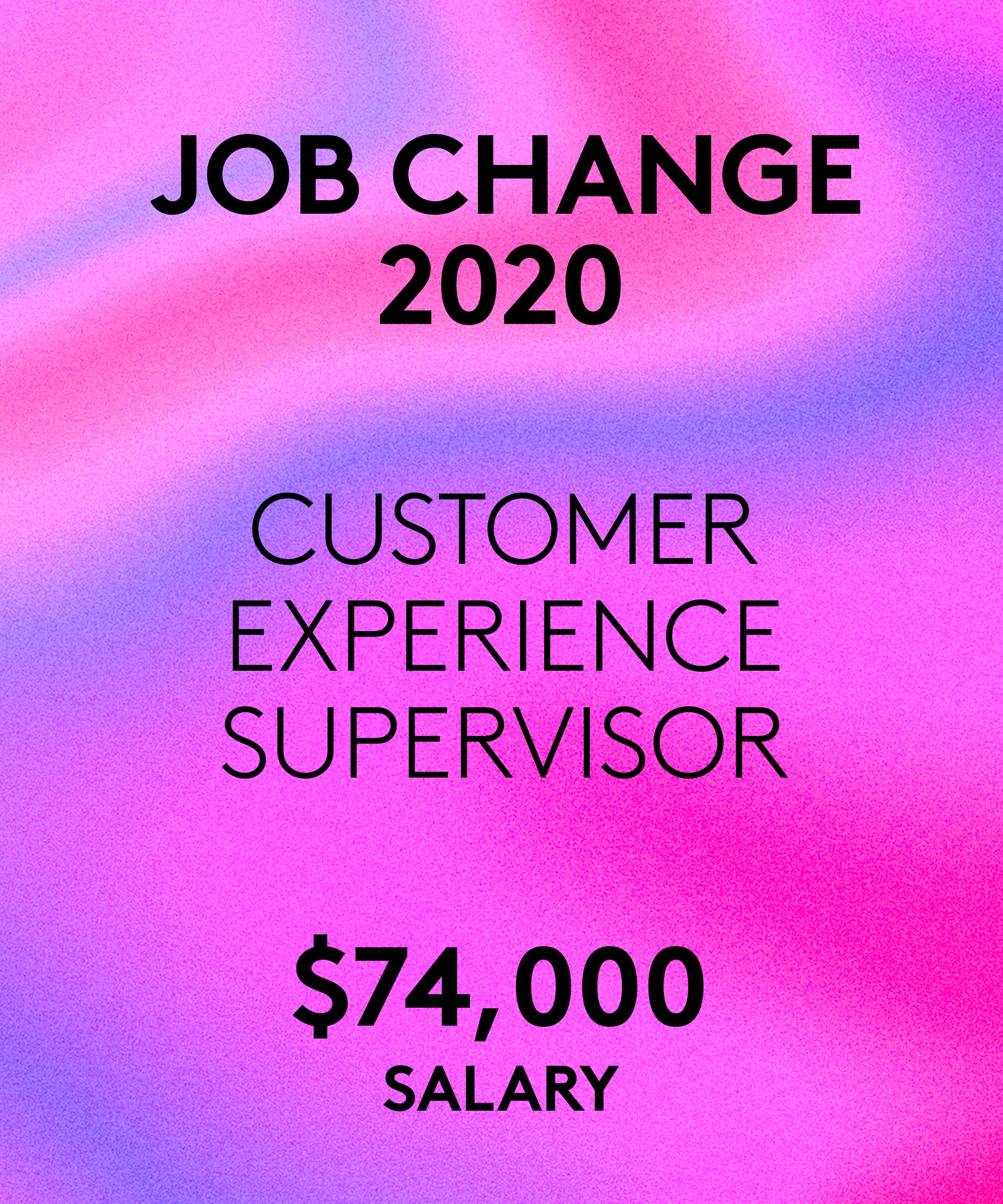
This new team was the best I’d ever worked with. The management was genuinely kind and supportive, and created an environment where trying new things and learning from them was encouraged.
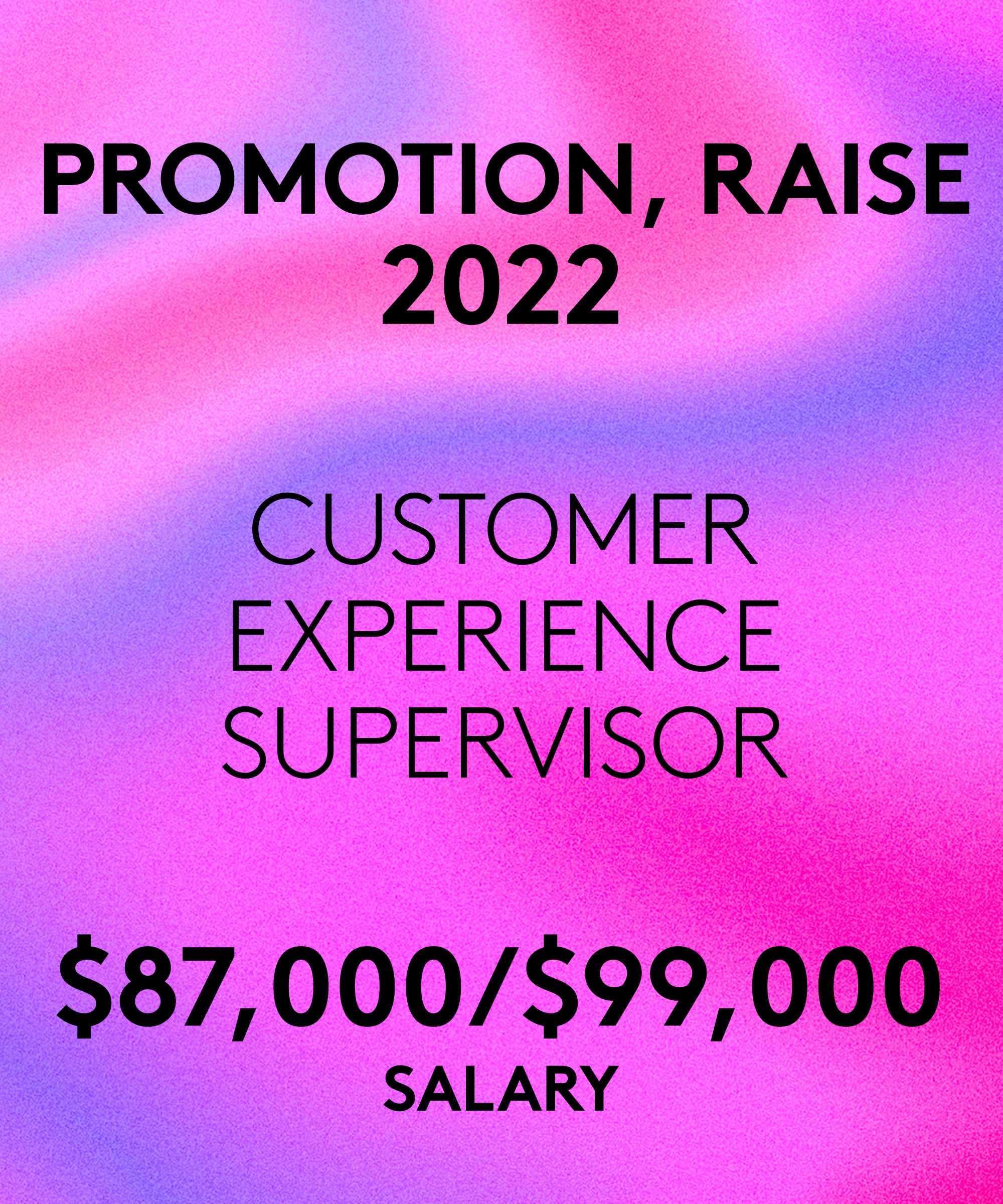
In the fall of the same year, my boss left the company. Because I took on some of her responsibilities through our busy holiday season, I spoke with both HR and my temporary manager and shared that with the new responsibilities I was taking on going into the busiest season of the year in e-commerce (Black Friday/Cyber Monday, IYKYK), I thought the scope increase should be reflected through a title change or salary increase. My salary was raised to $94,000, and I received an end-of-year bonus of $2,500.
This was really smart timing because my end-of-year merit increase of 5% was based on the higher number, and this brought me up to $99,000.
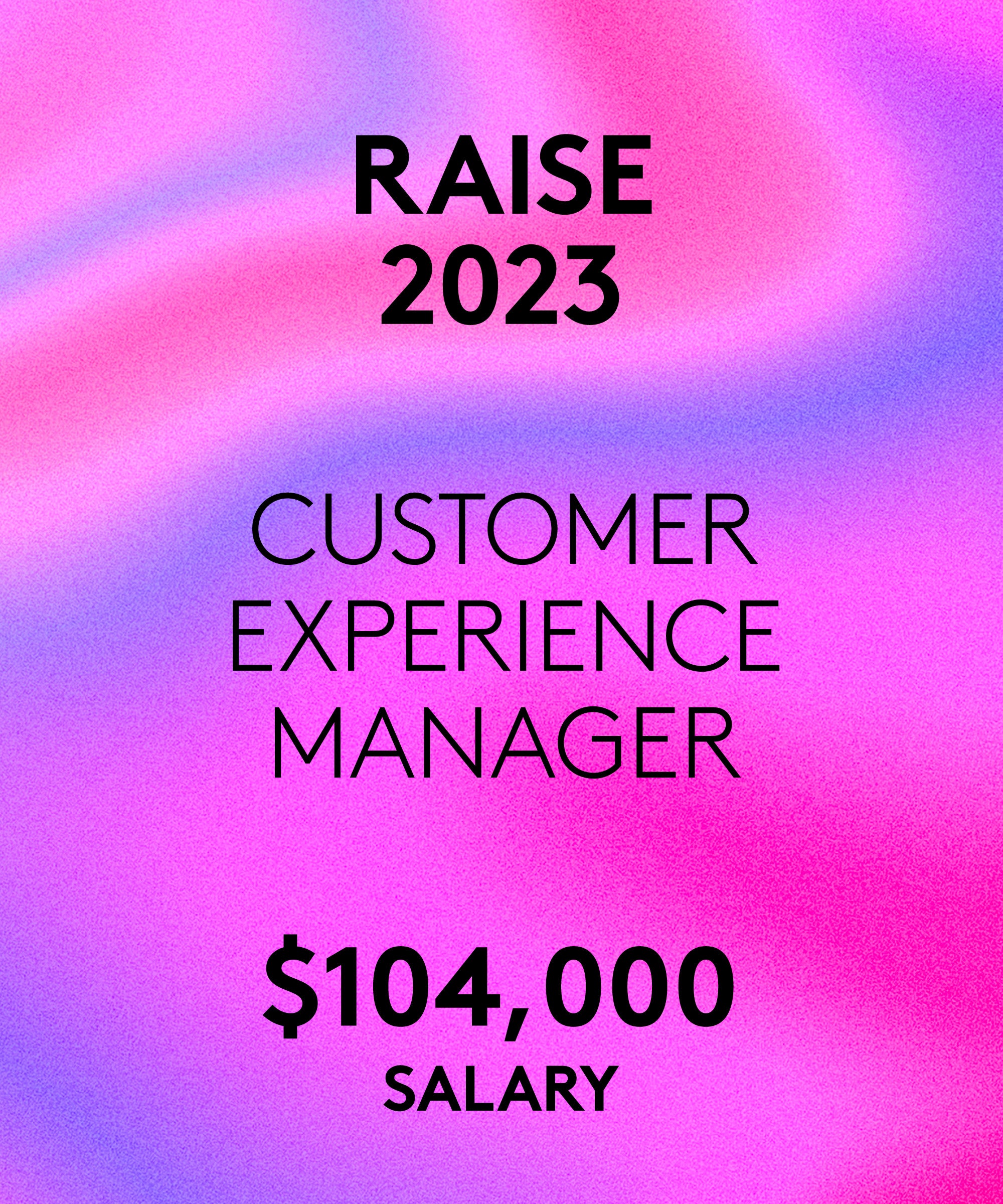
Now, I’m pushing for a promotion to a senior manager role and at least a $10,000 raise. Ultimately I’d like to leave the customer experience field and focus more on internal culture, learning and development, and manager coaching. I’m trying to figure out the best way to work toward this without taking a large pay cut.
Like what you see? How about some more R29 goodness, right here?
Salary Story: I Used This Move To Get Interviews
I Got My Dream Job, Despite My Imposter Syndrome















